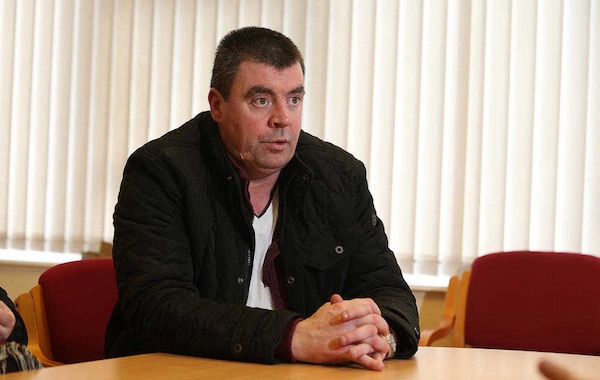
A man accused of taking part in the 1998 Omagh bomb has said there needs to be a public inquiry into the attack which claimed the lives of 29 people and for which he wrongly spent two years in jail.
South Armagh man Seamus Daly was speaking after the case against him collapsed this week. A Crown prosecution lawyer officially withdrew the prosecution during a routine magistrate’s hearing at Ballymena courthouse in County Antrim earlier this week.
The decision to drop the case came only after ‘star witness’ Denis O’Connor made confused and self-contradictory claims regarding a phone call he said he received from Mr Daly, the central plank of the case against him. O’Connor, who has now given given three or four other versions of his story, once faced charges in connection with the bomb himself.
“I have been blamed over a phone call that I never made and that has been admitted in court,” Mr Daly said. He vowed to challenge a civil court decision against him three years ago because it also relied on the testimony O’Connor, now exposed as unreliable.
Mr Daly said he was being used as a “scapegoat” because he was a proud republican. “They have picked five or six republicans and they have labelled them with this, five or six republican families around the border region,” he said.
He had been living openly in the north of Ireland for five years before he was arrested in Newry in 2014. He believes the timing of his arrest was connected to legal action by Omagh relatives who are campaigning for a public inquiry.
Mr Daly was arrested by the PSNI as he accompanied his wife to the town hospital’s maternity unit. He was charged and jailed on the day his second child was due. He said the whole incident has placed a strain on him and his family.
“If you were me could you get work anywhere?” he asked. “While it is nothing compared to what the Omagh families have suffered you are tainted, it has tainted the whole family. They have made me out to be the big bad wolf.”
His lawyer Peter Corrigan said the inconsistencies and unreliability of Denis O’Connor’s evidence had been “in the papers since 1999 so we don’t know why he was prosecuted in the first place”.
Mr Corrigan called on authorities to carry out analysis of the “totality of the mobile phone evidence and not just the partial evidence provided by the prosecution”.
Late last month, the British government argued that ‘national security’ meant that a legal challenge to its refusal to hold a public inquiry had to take place behind closed doors. They have long refused to reveal details of how state forces monitored the bomb as it crossed the border into Omagh, fuelling suspicions that the attack may have been planned to weaken the breakaway armed groups and encourage support for the 1998 Good Friday Agreement.
INTERNMENT CALL
The Republican Network for Unity said the case had “once again exposed the draconian use of remand periods as a form of internment”.
“The effects of internment employed in the early 70s and its contemporary form are exactly the same. Men and women are dragged away from their families by a colonial militia, often using force and deposited in a prison where they will spend up to three years,” they said.
“Article 9 of the 1948 Universal Declaration of Human Rights decrees that ‘no one shall be subjected to arbitrary arrest, detention or exile’. However, arbitrary detention has become a characteristic of the state’s attempt to solve the National Question. Instead of attempting to remove the cause of conflict, they simply remove those who highlight it.
“The continued use of internment by remand against Irish republicans, who have sought to build political opposition to the denial of national sovereignty by Britain, should naturally attract the attention of international human rights groups. However, Britain’s Imperial influence has manipulated so called champions of human rights into believing the false narrative that Ireland no longer has a political problem.”
A statement by Cait Trainor of the Release Seamus Daly campaign called for the harassment of his family by state agencies and media to cease.
“The case against Seamus Daly has been flawed from the beginning, the British government along with the prosecution proceeded against Seamus with no tangible evidence,” she said.
“The prosecution demonstrated a tyrannical and farcical approach in their pursuit of holding someone, no matter who that person may be to account.
“The case against Seamus Daly showed a total disregard for his human rights and liberty and we hope that he is the last person to be subjected to internment and false allegations arising out of the Omagh bomb.
“We would like to take this opportunity to thank all organisations who have helped us highlight Seamus’s case and in particular the many individuals who showed great courage in speaking out in what is deemed a very sensitive subject in our history.
“We would like to pay tribute to Seamus and his family who have been steadfast in their commitment to achieving justice for Seamus.”
![[Irish Republican News]](https://republican-news.org/graphics/title_gifs/rn.gif)
![[Irish Republican News]](https://republican-news.org/graphics/title_gifs/harp.gif)

